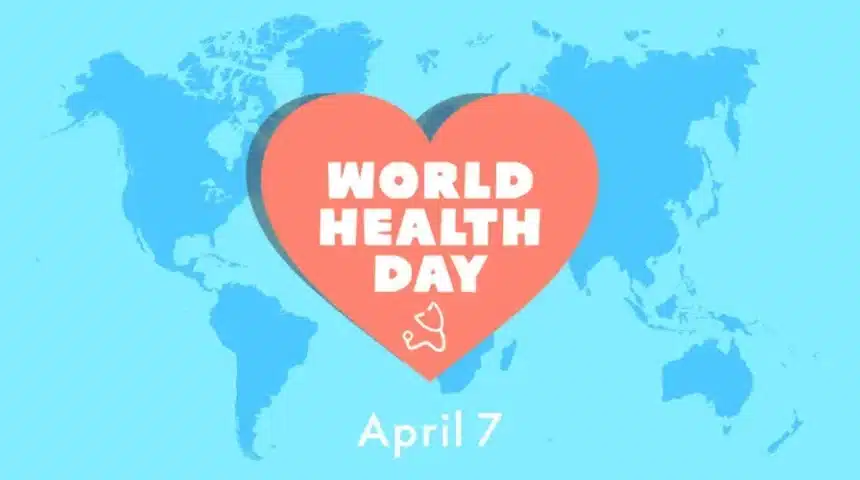World Health Day is observed every year on 07 April. World Health Day is celebrated every year to raise awareness about the ongoing health issues that concern people across the world. The day is also used as an opportunity to spread awareness about the overall health and well-being of people.
The Day 7 April marks the anniversary of establishment of WHO in 1948.
Theme of World Health Day 2022
World Health Day is celebrated every year to raise awareness about the ongoing health issues that concern people across the world. The day is also used as an opportunity to spread awareness about the overall health and well-being of people.
In the midst of a pandemic, a polluted planet, increasing diseases like cancer, asthma, heart disease, on World Health Day 2022, WHO will focus global attention on urgent actions needed to keep humans and the planet healthy and foster a movement to create societies focused on well-being.
The theme for World Health Day 2021 is “Building a fairer, healthier world for everyone”.
Quick Facts about World Health Day
Here are some quick facts about human’s health:
- 829000 people die of diarrhoeal disease every year which is caused by polluted water and poor sanitation.
- Air pollution kills 13 people every minute due to lung cancer, heart disease and strokes. Stop burning fossil fuels like oil, coal and natural gas.
- Nine out of ten people breathe polluted air. Stop burning fossil fuels like oil, coal and natural gas.
- Climate change is a threat to human health driving diseases like cancer, asthma, heart disease, and mosquito-borne diseases like Dengue.
- 3.6 billion people lack safe toilets globally. Untreated human waste degrades ecosystems and human health.
- 2 billion people lack safe drinking-water globally. Protect water sources by preventing sewage, waste and chemicals from entering our lakes, rivers, or groundwater.
- 829 000 people die from diarrhoeal disease every year caused by polluted water and poor sanitation.
- Manage medical waste safely. Needlestick injuries from discarded syringes can cause Hepatitis B, C and infectious diseases. Emissions from burning of health care can increase cancers.
- Tobacco kills more than 8 million people every year & is highly addictive. It is a major risk factor for cancer, heart, lung diseases. 600 million trees are chopped down to make 6 trillion cigarettes every year, decreasing the clean air we breathe.
- Rising temperatures and floods caused by climate change will place an additional 2 billion people at risk of dengue infection.
- Nitrogen dioxide pollution can aggravate respiratory diseases, particularly asthma. Well planned public transport systems, including safe walking and cycling, can improve air quality, mitigate climate change, and deliver additional health gains.
History of World Health Day
7 April of each year marks the celebration of World Health Day. From its inception at the First Health Assembly in 1948 and since taking effect in 1950, the celebration has aimed to create awareness of a specific health theme to highlight a priority area of concern for the World Health Organization.
Over the past 50 years, this has brought to light important health issues such as mental health, maternal and childcare, and climate change. The celebration is marked by activities that extend beyond the day itself and serves as an opportunity to focus worldwide attention on these important aspects of global health.
Read More: How Big Pharma Finds Sick Users on Facebook

